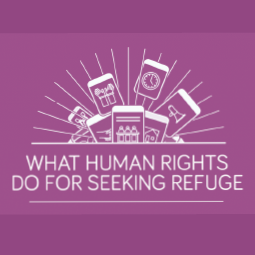
Christopher J. Newman: I think there's some very interesting questions as to what type of rights should emerge. What we have to do is to create a culture a set of values that people and that states adhere to. There is no space police. Instead what we rely on is international pressure and political pressure and imposing normative behavior. International space law covers a multitude of human activity. It's a functional classification of existing legal systems and of activities that would occur on Earth but that just happen to occur in outer space. We have a series of international treaties which form the body of space law.
Now these treaties have been signed by over a hundred nations. Pretty much any entity engaging in space activity is said to be bound by the Outer Space Treaty. It is effectively an extension of terrestrial law into outer space. By the very nature of that astronauts have terrestrial guarantors of their rights and it's based around the state they come from. So an American astronaut would have her or his rights protected by the United States.
In terms of an astronaut landing in a hostile territory, the Outer Space Treaty states that astronauts should be regarded as envoys of mankind, so they should be afforded assistance and crucially, they should be returned to the state of origin as quickly as possible.
The International Space Station, there's a memorandum of understanding which deals with the way in which the ISS is governed and what that does is it attaches criminality to the astronaut. So for example, if I'm a Russian astronauts and I commit a crime in the American module, it's American law that will prosecute me. What the Outer Space Treaty does is puts the liability around the space object.
So the launching state of a space object retains control retains jurisdiction. And so anybody within that craft would be subject to those national laws. In terms of colonisation and humanity moving out into the solar system, the Outer Space Treaty is quite clear, there is no ownership permitted. So states can't land on Mars and say "we're going to have this bit for America, we're going to have this bit for Holland." The whole thrust of the international treaties was to ensure that human activity in outer space was peaceful.











